Organizer, The (1963)
“Friends, it’s not true: we haven’t lost. This is only the darkest hour.”
|
Synopsis: |
|
Genres, Themes, Actors, and Directors:
Review: … as well as how intimidating it is to stand up to the dismissive and patronizing bosses at their company: … and the challenges that arise when a visiting worker in much more dire straits insists he has no choice but to be a scab. Mastroianni’s role throughout is a crucial one, playing a seemingly meek yet actually headstrong force who knows that he must act with deliberation and relational savvy at all times. The cinematography, historic sets, and ensemble cast all add to the film’s air of bleak realism, helping us imagine we’re really there during this time. I was interested to read in J. Hoberman’s essay for Criterion the following about director Mario Monicelli, whose only other film I’ve seen was the featherweight heist caper Big Deal on Madonna Street (1958):
I haven’t seen enough of Monicelli’s titles to say, but I would venture to guess that this remains one of his most potent — and still relevant — outings. It’s well worth a look. Watch for several familiar faces from Italian cinema of the time, including Renato Salvatori: … and Annie Girardot (both from Rocco and His Brothers). Notable Performances, Qualities, and Moments:
Must See? Categories
Links: |
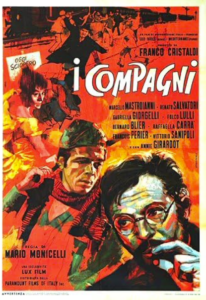
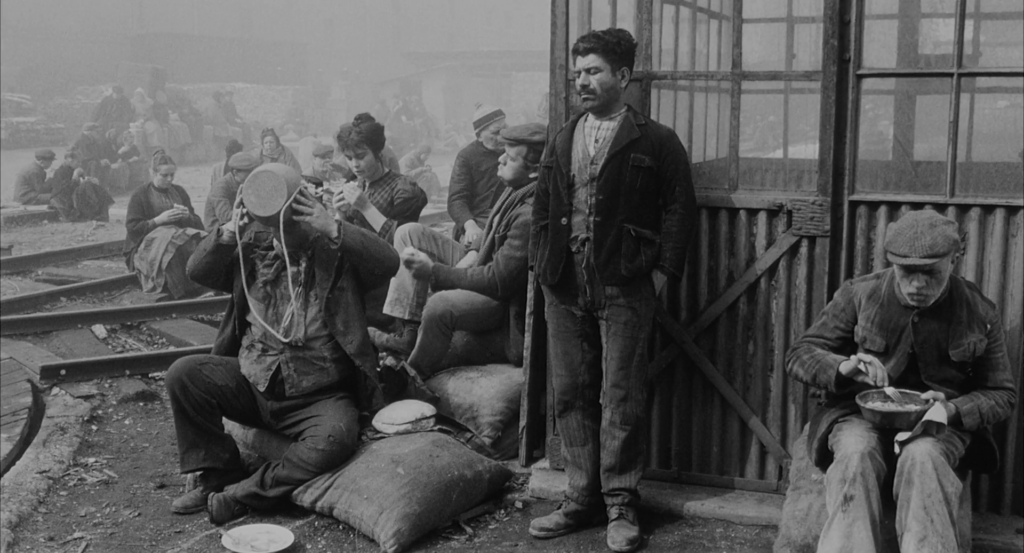
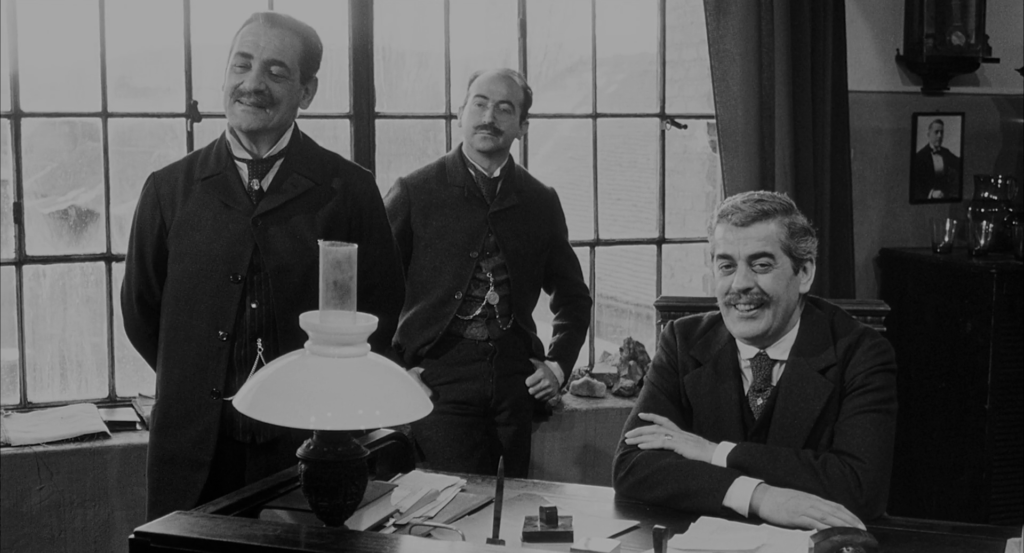
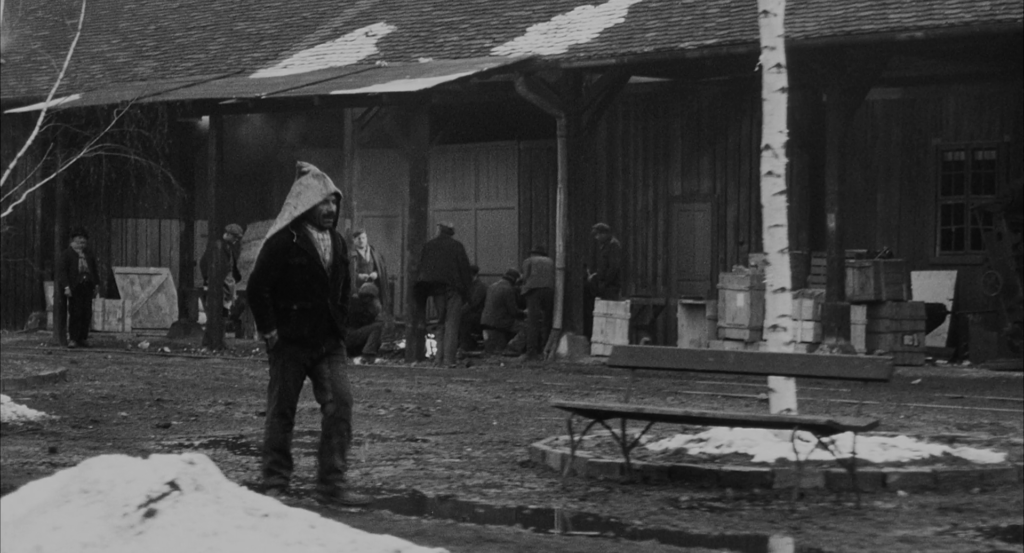
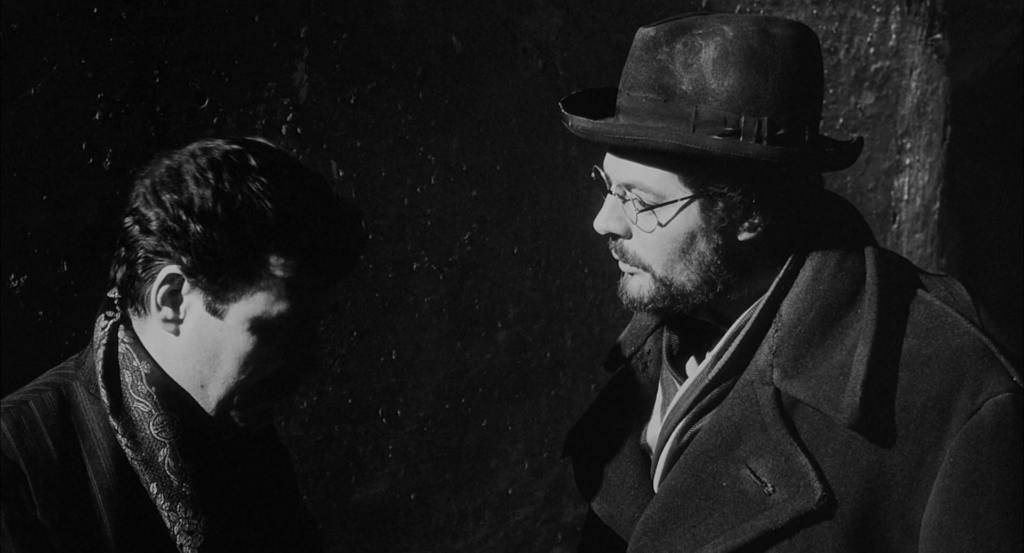
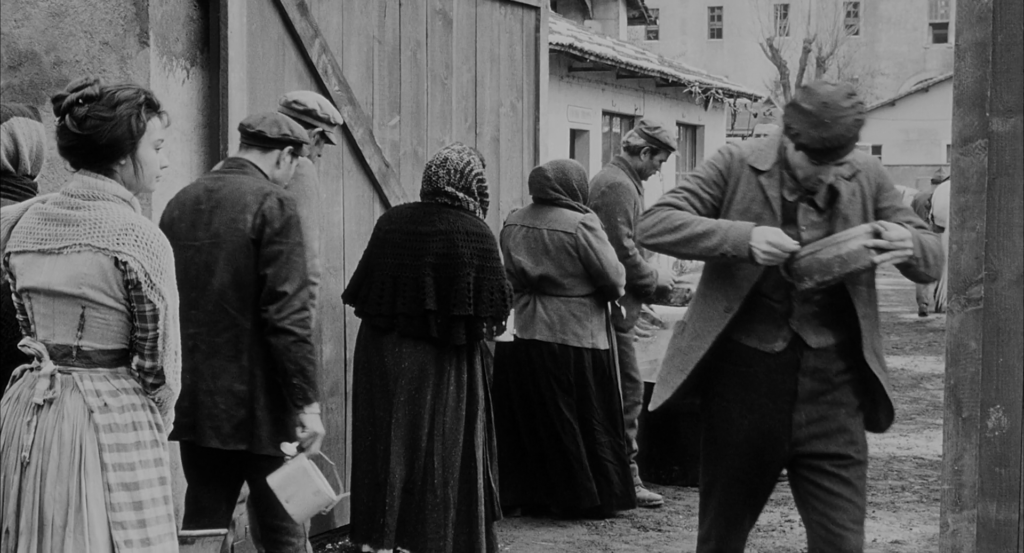
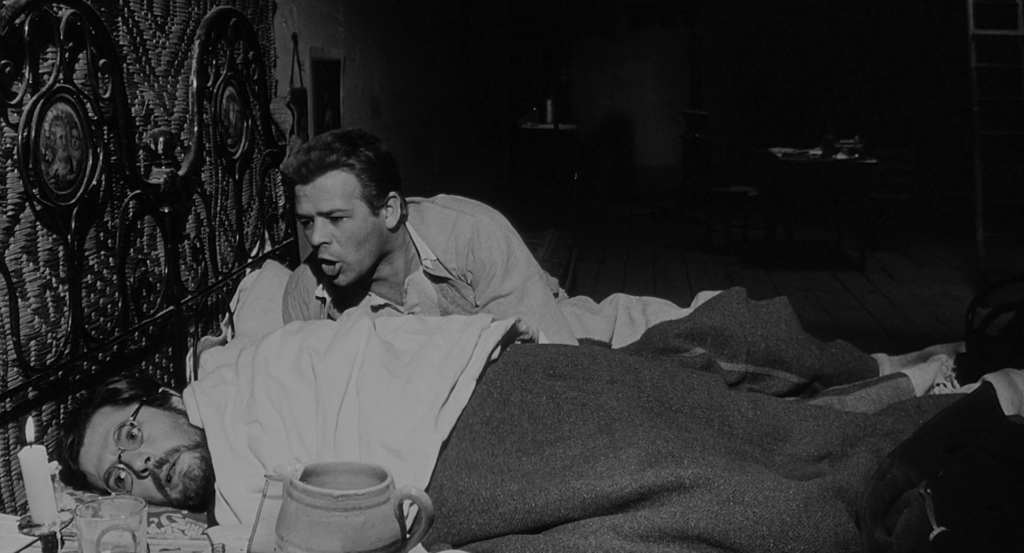
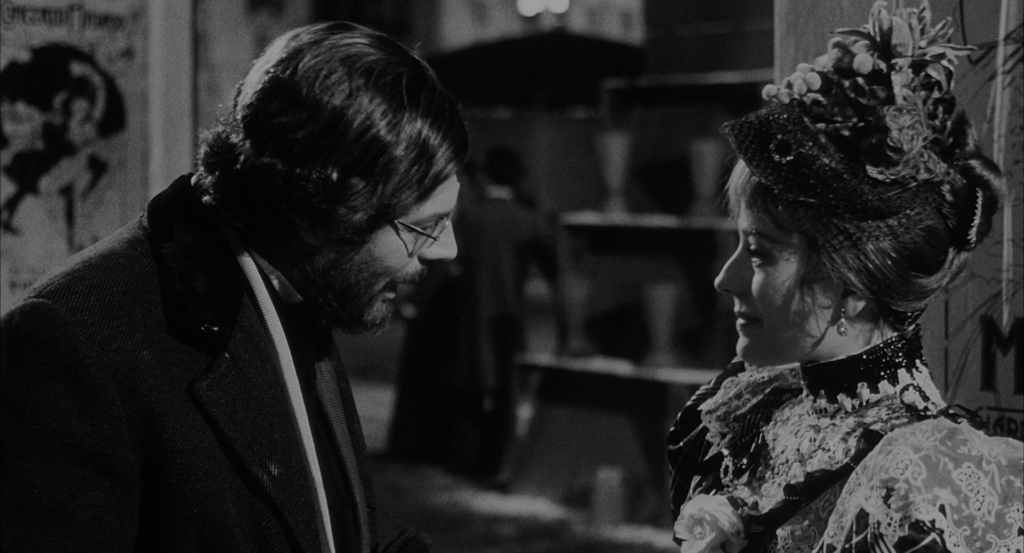
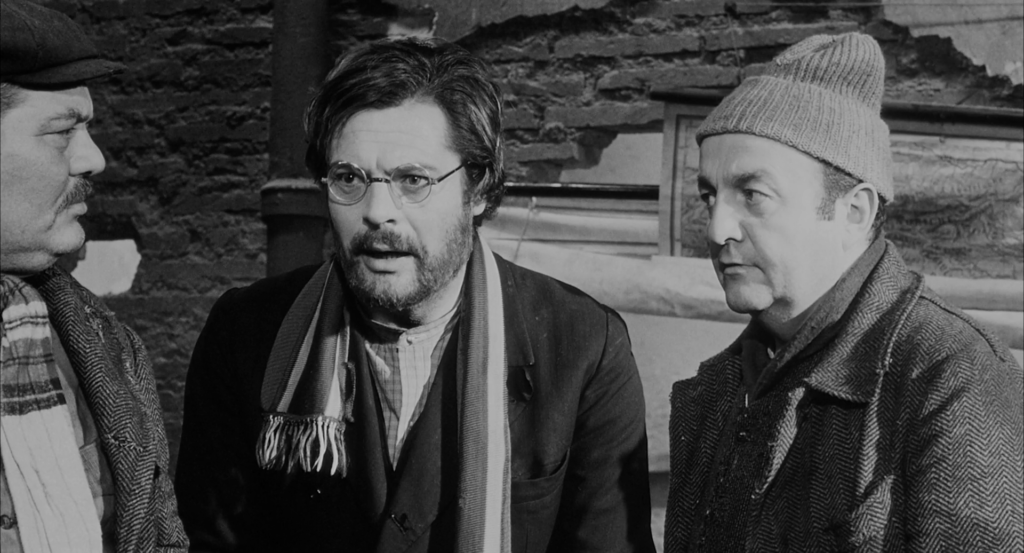
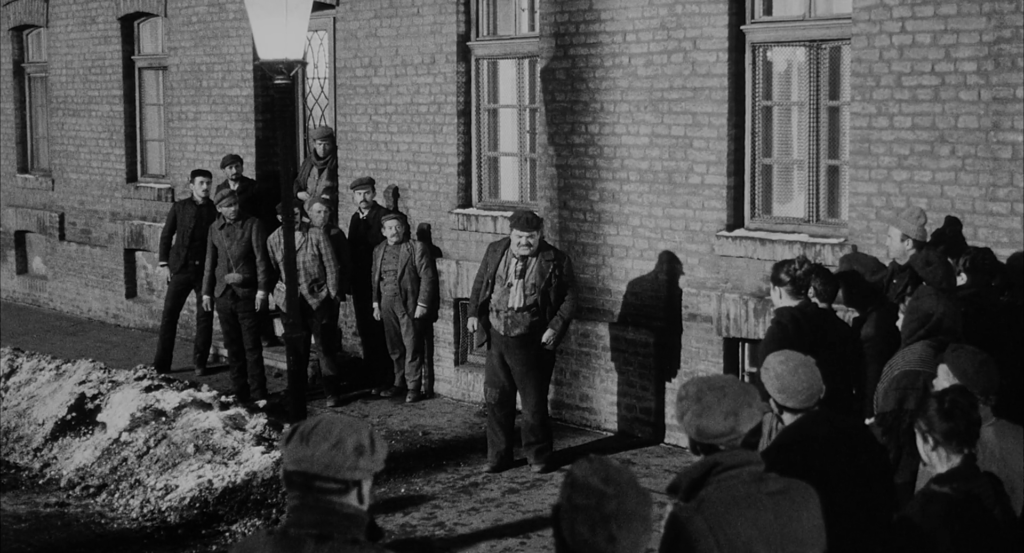
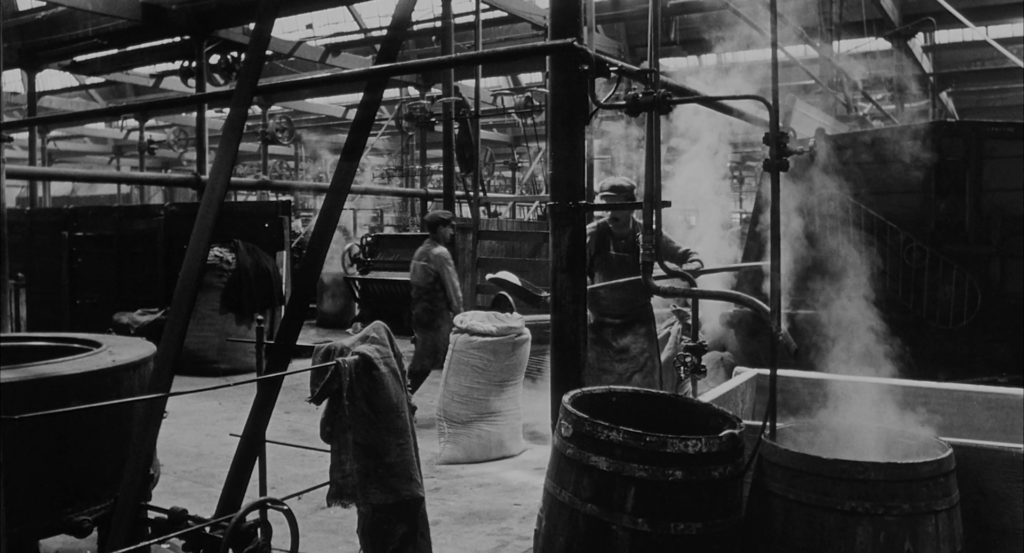
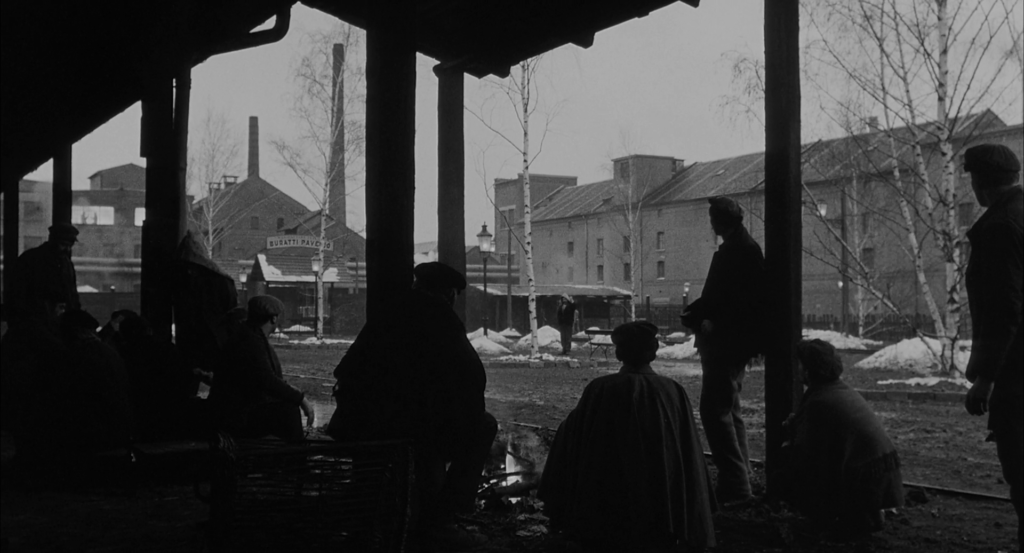
One thought on “Organizer, The (1963)”
First viewing (11/10/18). Agreed; must-see, for its subject matter. As posted in ‘Film Junkie’ (fb):
“My good man, accidents are accidental. You have to be careful and hope they don’t happen.”
‘The Organizer’ (1963): This is a classic Italian film by Mario Monicelli – starring Marcello Mastroianni, Renato Salvatori and Annie Girardot – that I hadn’t seen. (Member) Dan Leo is quite fond of Monicelli’s earlier film ‘The Great War’ – which I also haven’t seen and is not easy to come by; it’s on YouTube but without subtitles… and since my Italian is limited pretty much to ‘Ciao!’, ‘Basta!’ and ‘Puttana!’, i’d miss a lot. [Update: ‘The Great War’ now seems easier to locate.]
‘The Organizer’ would go quite well on a double-bill with ‘Norma Rae’. Even though it doesn’t go as deep as actually leading to the formation of a union, it deals in thorough detail with the rights of workers – in this case, those working in a textile factory (for 14 hours a day) in Turin in the late 1800s.
Mastroianni (effectively subdued) plays a teacher who takes it upon himself to travel to towns where he finds real satisfaction in taking the reins of a labor activist; the townsfolk he comes across here are badly in need of one. This is a really gripping film (exquisitely shot) and, considering the heaviness of the subject matter, it moves rather quickly (at times, with some welcome humor) as it follows through compelling avenues. It has much to say about the craftiness of oppressors, so it obviously remains quite relevant today.